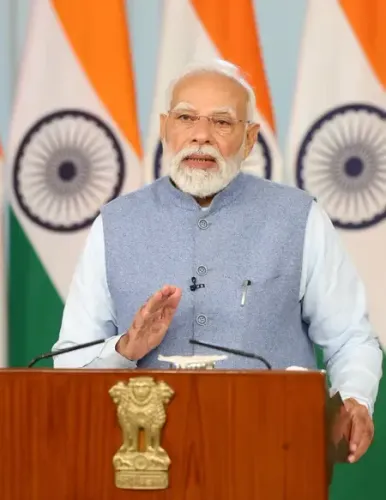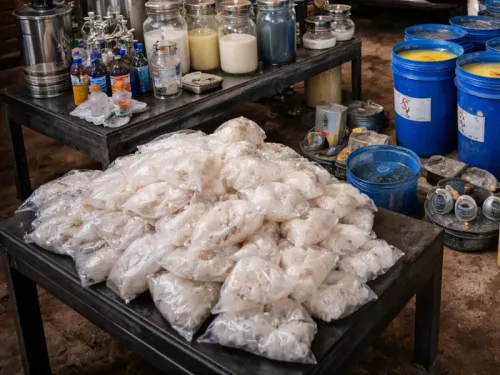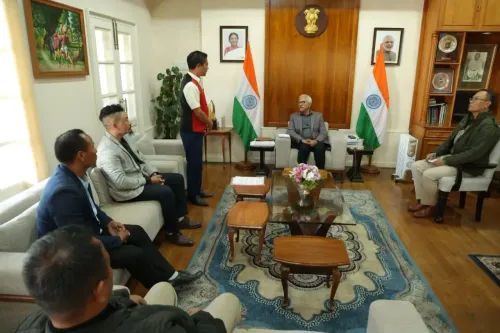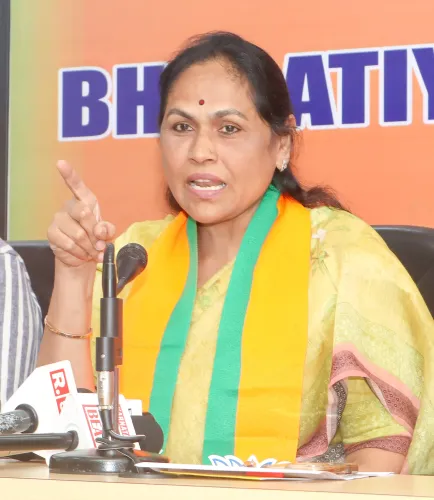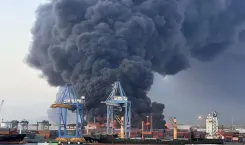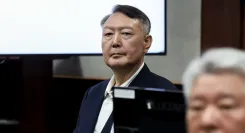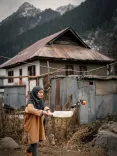Maharashtra to Formulate Detailed Strategy for Reusing Contaminated Water: Environment Minister

Synopsis
Key Takeaways
- Comprehensive plan for sewage management
- Establishment of a technical cell for pollution control
- Focus on sustainable practices in local governance
- Collaboration to curb agricultural pollution
- Public involvement in environmental conservation
Mumbai, Feb 10 (NationPress) Maharashtra's Environment Minister Pankaja Munde announced on Monday that the state government plans to create a detailed strategy to avert sewage from polluting rivers and lakes while encouraging the reuse of contaminated water.
Additionally, a specialized technical unit will be set up to apply cutting-edge technologies for managing pollution in both municipal and urban areas.
Her remarks came during a one-day conference titled "Municipal Wastewater Management Gaps, Sustainability, and the Way Forward," which was co-hosted by the Maharashtra Department of Environment and Climate Change, the Maharashtra Pollution Control Board (MPCB), and IIT Powai.
The conference aimed at addressing sustainable sewage management practices within municipal corporations and local governing bodies.
Munde pointed out that a substantial amount of untreated sewage from village panchayats, municipal corporations, and urban areas flows directly into rivers, leading to serious environmental and health issues.
To combat this challenge, the Environment Department will formulate a strategic and technical framework for the conservation of rivers and lakes. Furthermore, a dedicated technical cell will be established to conduct training and awareness initiatives for local governing bodies regarding innovative wastewater management technologies.
She further emphasized that agricultural pesticides contribute to water pollution. To address this, a collaborative effort among various governmental departments is essential to ensure effective pollution control measures.
This initiative includes awareness campaigns, legal actions where necessary, and strict enforcement of environmental regulations.
She encouraged the public to take an active role in environmental conservation, stressing that sustainable practices today will pave the way for a healthier future for generations to come.
K.H. Govindrao, the principal secretary for state urban development, pointed out that untreated sewage frequently taints drinking water sources. He recommended that if sewage were treated and reused locally, pollution levels could be dramatically lessened.
He underscored the necessity for wastewater treatment plants, awareness initiatives, and interdepartmental collaboration to effectively tackle this issue.
Dr. Avinash Dhakne, Member Secretary of the Maharashtra Pollution Control Board, provided a comprehensive overview of the current state of water pollution in Maharashtra’s urban areas.
Experts like Dr. Rakesh Kumar from Indore and Professor Anil Kumar from IIT Bombay discussed natural methods for pollution control.
They also shared insights on "Enhancing Infrastructure for Polluted Water Treatment".
Officials from Mumbai, Konkan, Western Maharashtra, North Maharashtra, Marathwada, and Vidarbha presented success stories of innovative pollution control projects. Navi Mumbai's Municipal Commissioner, Dr. Kailas Shinde, delivered a presentation on "Sustainable Solutions for Clean Water".


